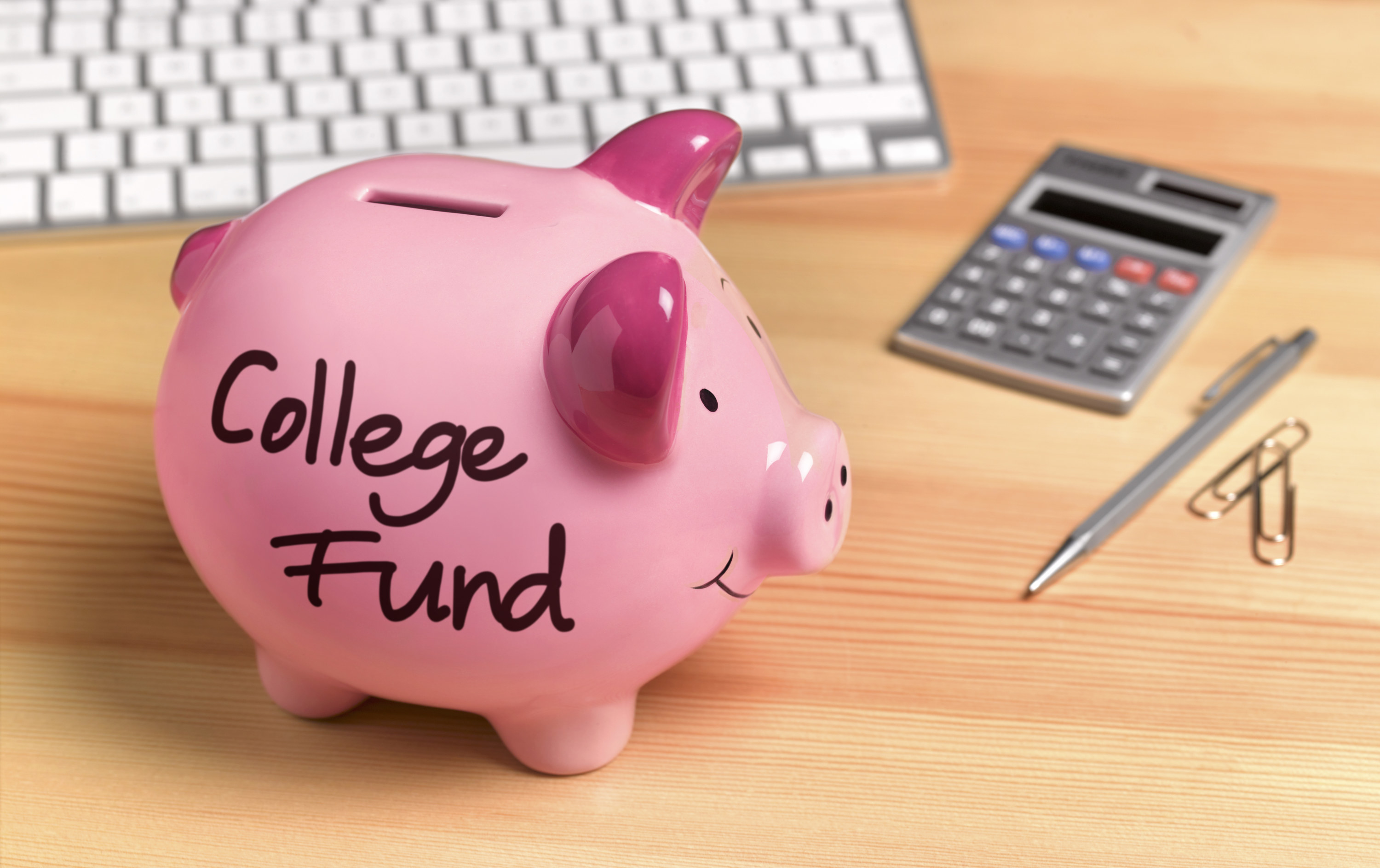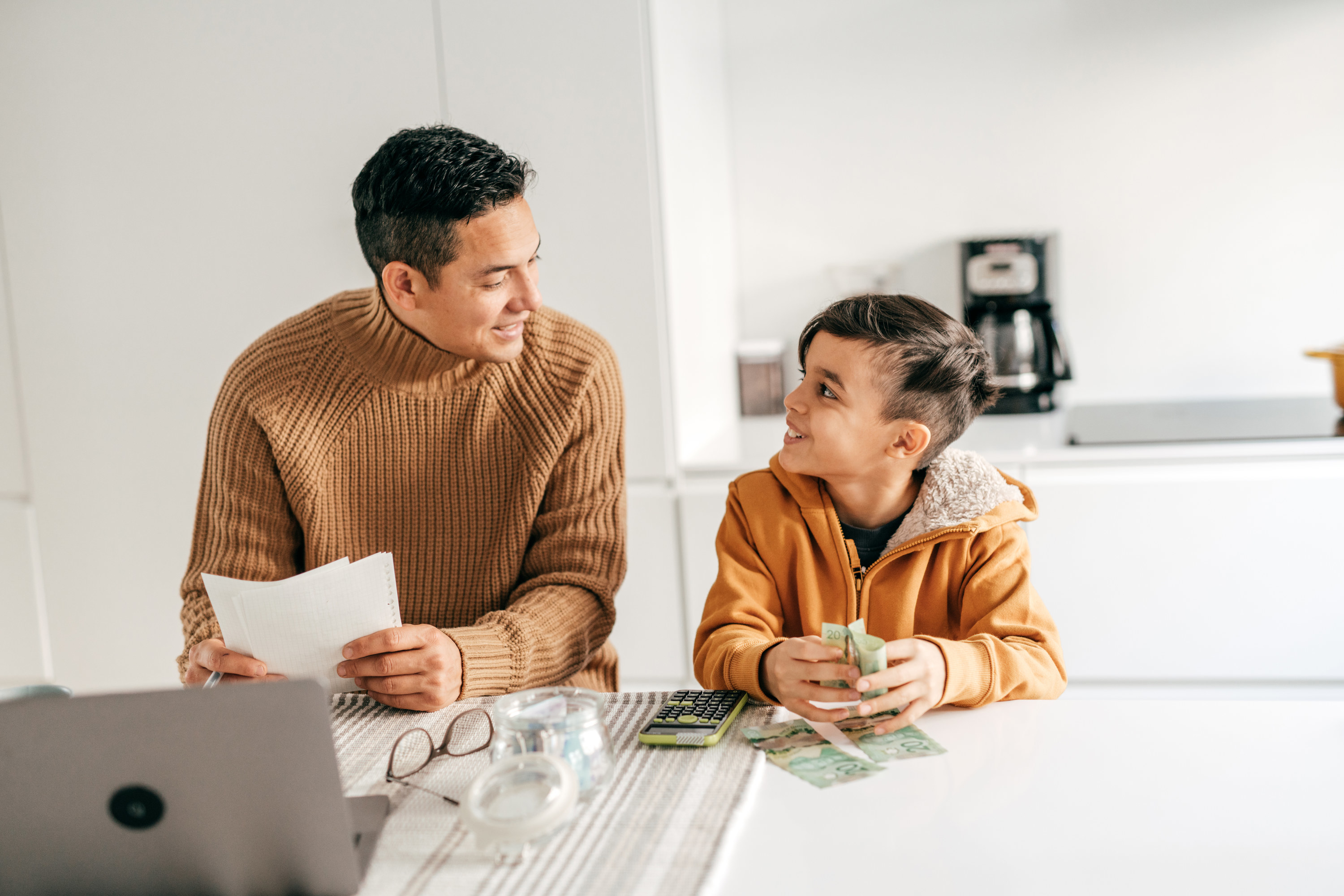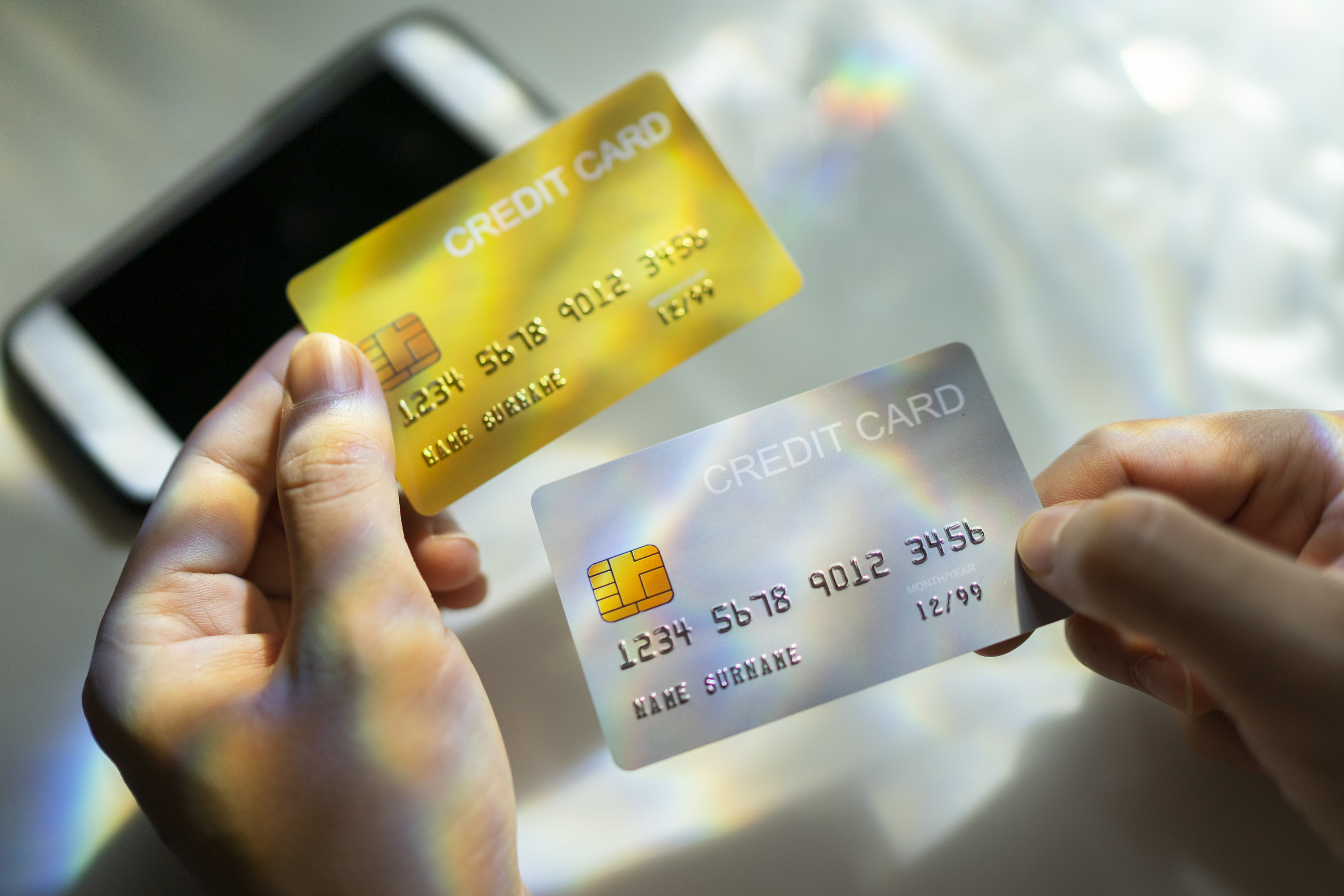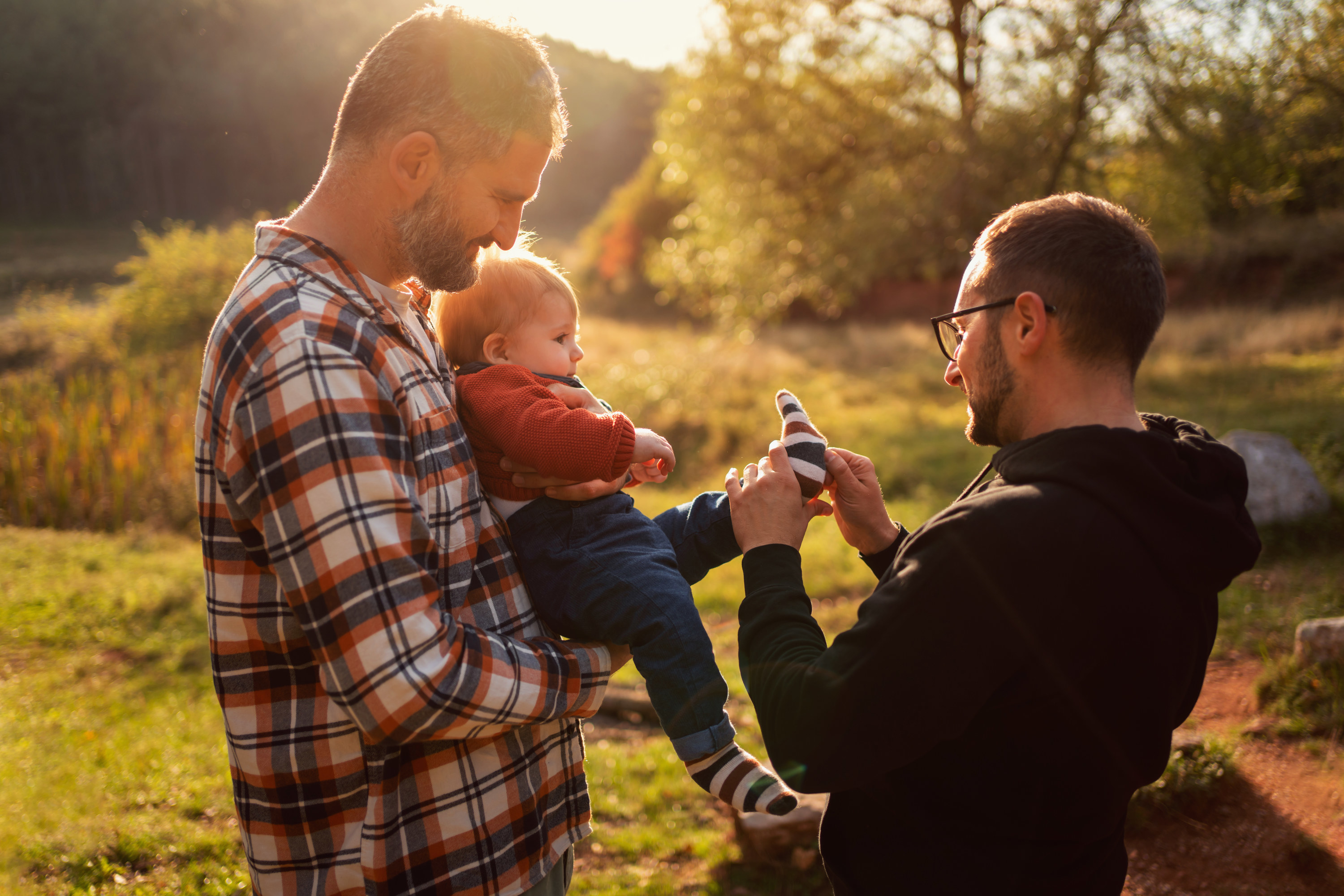Having a child can change every aspect of your life, including your finances (yikes!). So recently, Reddit user u/jetpackjoypup asked r/PersonalFinance for their tips for first-time parents who don't come from a strong financial background, and the replies that flooded in were so thoughtful and helpful. Here are some of the top-rated comments:
1. "The best gift to give to your kids is to make sure that you’re financially set for retirement. This is more important than paying for their college."

2. "Let them make mistakes when the stakes are low. My kids have had debit cards since age 8. I fund the account with what I normally spend on them for clothes and treats. They have natural consequences if they don't budget and stick to it."
3. "Besides financial preparations, please talk to your kid lots about taxes, healthy relationships, managing stress, finances, why manners matter, how to protect themselves from fraud, violence, abuse, different ideas of fairness, culture, history, power, governance, scientific thinking, etc. Anything they show interest in is a bonus. They won't understand what they're hearing initially, BUT they ARE listening and will remember, and these talks will make sense in the future. I think my 'intuition' saved my ass more ways and more times than possible to count, and I suspect it came from those talks that didn't make sense at the time."
4. "When my kid was 2, my dad said, 'The best thing you can do for your kid is send him into the world debt-free. Start a 529.' So, I started a 529. My kid's in college now, and it's paid for, completely. I bought him a $4,500 car so when he enters the world he's at zero, and everything from then on is his fault."

5. "Start saving $1,200 a month [or your estimated daycare costs] now. Then when daycare comes, you have a few months saved, and you already know how to live well without spending that $1,200 a month."
6. "Children understand the exchange of goods and services for something of value by the age of 3. Remember that every time you offer them a treat in exchange for doing something you want them to do, you are creating that construct in their developing minds."
"Research further shows that we are set as natural spenders or savers by age 7, so start early with the concept of putting aside some of what you deem valuable for both short-term and long-term future use. Halloween and Easter candy are good opportunities for this, as well as allowance if you plan to do allowance. The key is to start looking at everything as concepts, because that is what they are to that rapidly forming brain you are now in charge of helping develop."
7. "My son has been investing since age 9. We started with stocks of companies he was interested in and now at age 15 are diversified including ETFs and mutual funds. He knows how to analyze fees and returns. But none of that matters if he doesn’t know how to pay himself first. I have been very clear with him that he needs to learn this because I intend to spend all my money on us while I’m alive."

8. "My parents taught me so many wonderful financial lessons. I started getting an allowance at 11, and it was BIG: $250 a month. But, I had to immediately put half in my savings account, and then I had to pay for everything I wanted myself (except school/sports/medical related, gifts, or if they 'invited' me somewhere like the movies)."
"I wanted a new toy? Cool, check your allowance money. Want to go to the movies with friends? Go for it if you have the money! Love that expensive PacSun hoodie? Get out your wallet. I was responsible for my own gas and regular car maintenance when I turned 16 (if I got a flat or something unexpected, they’d help). I learned real quick the value of money and saving. And I can still recall how proud I was when I saved up enough to buy the boombox I wanted — which I LOVED even more because I know how hard I worked for it."
9. "Teach by example. Don't spend extravagantly, especially in front of them. Teach them the difference between 'want' and 'need.' Teach them to live within their means. If you set a good example with spending habits, they will follow."
10. "Assuming the credit score ratings system essentially stays the same in 13–16 years, and you have good credit (e.g., 700+), consider adding your kid as an authorized user of your highest limit credit card, even multiple cards. You don't need to tell them or give them the card immediately, if ever. This can substantially help your child grow their own credit score and get better rates on private student loans, car loans, or a mortgage. If your credit goes below 700, remove your child as an authorized user so their (developing) credit isn't dragged down too."

11. "Look up Talking Cents. It was developed by University of Chicago, which is the best finance/economics school in the nation. Great financial literacy flashcards for kids. At a certain age, you can start talking about it and introduce them to certain topics."
12. "You now have greater and more enduring responsibilities. Re-evaluate your life and disability insurance coverages in case you are not able (or around) to provide for the child financially. If you're under 35, you may be able to get a million dollars in coverage for about $30/month."
13. "Nearly everything besides diapers and consumables that you need for your child's first year you can get for free. Everyone buys a changing table, crib, bottle warmer, etc., and then barely uses it. Babies are not hard on things. Ask your friends with school-age kids for their used baby stuff, or hit up Facebook Marketplace. Mommy groups love to shame first-time moms for not buying the latest and greatest stuff for their kids. Don't fall into that trap. Get free used stuff for your kid."

14. "Practice delayed gratification. Your kid will be asking for toys every time you make a Target trip with their sad puppy eyes. Don’t give in easily. Play and toys are currency for these younglings. Manage it properly and you’re off to a good start. They will learn the value of 'things' early on and hopefully learn that not everything is handed to them and that we work for these 'things.' I learned early on that our family can’t afford a lot of toys my other friends have and learned to value the toys that I have growing up. My two cents."
15. "A fun thing I’ve started with my kids (ages 4 and 6) is I give each of them $10/month and they pick a company to invest in. We then buy a partial share of that stock. Will be fun to see where they are at in another 15 years."
16. And finally, "Don't think of your money as your money; it's your family's money. Both my wife and I spend with that mentality to make sure we have our priorities straight. We consider our money to also be our kids' money. Not that they have any say in how it's spent, but more so that if we spend too much on ourselves, we won't have enough for them."

Note: Responses have been edited for length and clarity.
Do you have any more money tips for first-time parents? Share your wisdom in the comments!
And for more stories about life and money, check out the rest of our personal finance posts.

